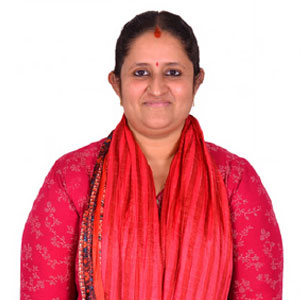
Within India’s vibrant startup ecosystem, technology is reigning supreme for its ability to reshape diverse industries. The Fashion & Apparel industry though conventional is experiencing the force of such a shift and is getting inspired to integrate sustainability and ecofriendliness in the Textiles sector.
Being the second most polluting sector known for extreme water pollution and wastage is beginning to reform with RangBio, a thriving and ambitious biotech startup right at the center of ushering this change. With innovative products that sit at the intersection of sustainability, green technology, circular economy, and climate technology, the company is addressing the major industry challenges in the most pollutive aspects, namely coloring and dyeing.
Tackling global issues like water pollution and danger to aquatic creatures in addition to moving towards the achievement of sustainable development goals, RangBio is leveraging microbes to derive colors and dyes in an ecofriendly manner. An early-stage deep tech startup incubated by IIT Madras’ Incubation cell, the company currently caters to the textile sector, curating sustainable textile dyes.
Innovative Product Solutions
Aligned with SDGs, RangBio's colors are available in red, maroon, and yellow at the moment with more work towards an expanded color palette with several shades. Derived from microbes, these colors offer businesses not just high quality dyes
and pigments, but also an eco-friendly assurance. The colors promise lower water consumption, zero to very less chemicals, and high energy efficiency in the manufacturing process.
Combined together, these features help lower 40 to 50 percent global warming impact. For brands, this fits their sustainability efforts perfectly. For eco-conscious consumers, these colors help simplify achieving an environmentally-friendly lifestyle. For RangBio, this, along with the unique processes it utilizes is what sets the company apart.
Led by a microbiologist and ‘microbes lover’ as she likes to identify herself, the company was established to resolve environmental problems using microbes. Leveraging her expertise, she set out to resolve the challenge of textile pollution, forming RangBio in 2023. Through immersive R&D, the team has developed products with great color fastness, preventing color bleeding from textiles, a typical problem that has kept natural colors from larger adoption so far.
“We select and screen microbes from various organic matter for color production and for particular colors. We then implement targeted strategies and formulations with extensive optimization before batch production in the lab, prioritizing quality and evenness across batches. Our colors are non-toxic, which also sets our product apart”, shares Revathi Ravishankar, Founder & CEO, RangBio.
Through immersive R&D, the team has developed products with great color fastness, preventing bleeding of colors from textiles
Growing Robustly
Established with the vision to disrupt and transform the natural dyeing and coloring industries, RangBio is growing robustly. RangBio won the first prize in Textiles Innovation Challenge and was one of the selected startups by the Ministry of Textiles, India, to present in the Sustainable Pavilion at BharatTex 2025, and also had an opportunity to present their work directly to PM Modi. The company has also been recognized for its innovations and has secured Grants from Startup India Seed Fund Scheme via Hyderabad-based RICH Incubator.
Moving further with this momentum, the company, currently catering to the textile sector, aims to innovate more sustainable products that develop the bioeconomy and serve diverse sectors including natural food colorants and sustainable cosmetics.
It aspires to contribute to the bio-economy and work towards the Aatma Nirbhar Bharat goal set forth by the Government. At the same time, it also aims to eliminate environmental challenges, creating a better world for the people to live in, free of pollution and toxicity.
We use cookies to ensure you get the best experience on our website. Read more...